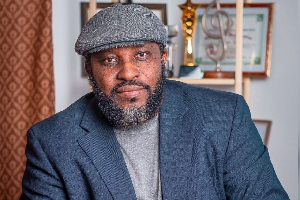Widows in the Upper East Region are still experiencing various forms of harassments including denial of their inheritance, high dropout rates of their school children and total neglect by their in-laws.
This became known during a stakeholder’s meeting organised over the weekend by the Widows Network of the Talensi–Nabdam District at Tongo of the Upper East Region.
The stakeholders meeting organised by the Widows and Orphans Movement and sponsored by Action Aid Ghana, brought together widows, traditional rulers, Department of Social Welfare, the media, Domestic Violence and Victim Support Unit of the Police among others; to discuss issues bothering widows and their children in the District.
A research conducted by the Widows Network of the Talensi–Nabdam District with support from the Widows and Orphans Movement revealed that, in the district alone, about 88 children in such families could not continue their schooling as their families could not fend for them.
The report said more than 10 widows have been denied of their husbands inheritance by their relatives and this include land, animals and houses thus making it very difficult for them to cater for their children.
“As a result of this problem, most of us abandon our children at home and leave for urban centres to look for menial jobs” said Mrs Beatrice Adongo Saa, a widow.
The research also revealed that 12 widows were neglected in the District by their late husband’s relatives to fend for themselves and children, and as result majority of the children have also migrated to the southern sector.
Narrating some of the ordeals they go through after the death of their husbands, some of the widows indicated that they were made to strip off naked, drink concoctions and had their hairs shaved off.
Others said they were forced to re-marry their late husband’s brothers against their will “this, I refused and I was tied and beaten by my husband’s relatives. I finally escaped after I used my teeth to tear the bonds, to my family house where I was also refused. I then went to a friend’s house and subsequently reported the case to the Orphans and Widows Movement who came to my aid by renting a room for me. As I speak to you now all my four children have ran to down south”. Said Ms Cynthia Dolbil another widow
The Widows therefore appealed to traditional rulers whom they believed commanded respect in their respective communities to take up the mantle and fight to change the negative trend meted out to them.
The Chiefs pledged to organise durbars and meetings to sensitize their community members to change the negative cultural practices that violate the rights of widows.
The Chief of Winkongo, Naba Moses Aganzua described some of the ordeals the widows go through as unfortunate and said in his traditional area, such practices have been banned.
Mrs Betty Ayagba, the Chief Executive Officer of the Orphans and Widows Movement, regretted that widows were still going through such hardships after losing their husbands.
She said in some areas another worrying trend was to deny such widows meat and eggs which affects the nutritional status of many women leading to maternal mortality and malnourished children.**
Regional News of Monday, 14 May 2012
Source: GNA
Widows in Upper East still facing increasing harassments
Entertainment











